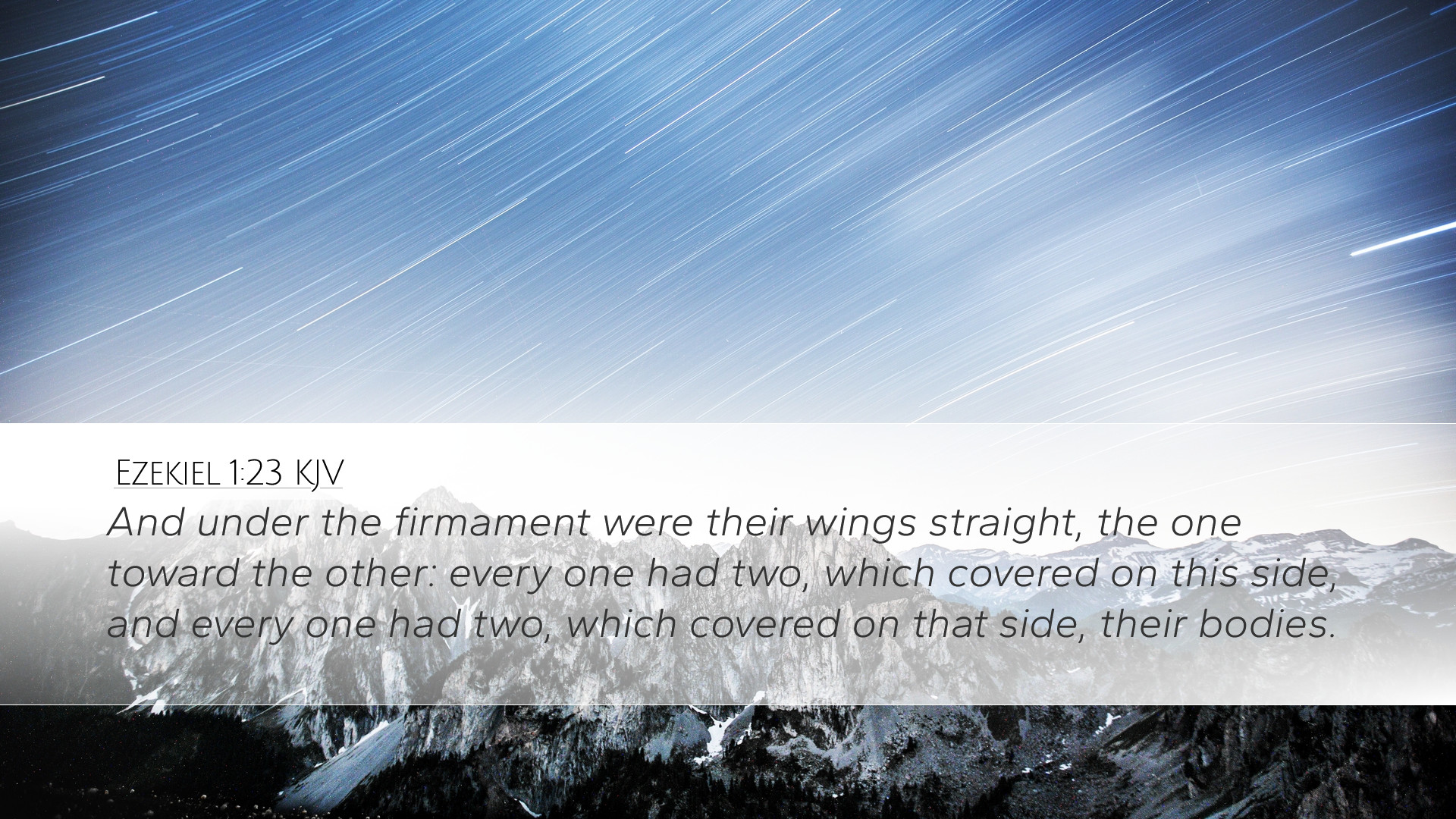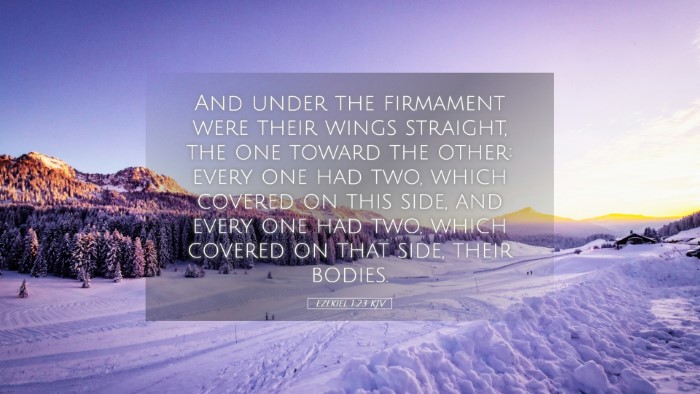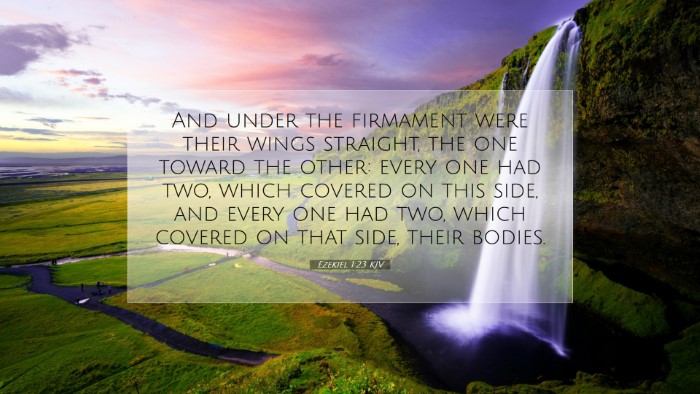Ezekiel 1:23 Commentary
Ezekiel 1:23: "And under the firmament were their wings straight, the one toward the other: everyone had two, which covered on this side, and everyone had two, which covered on that side, their bodies." (KJV)
Introduction
The vision of the chariot in Ezekiel's first chapter is pivotal in understanding the prophetic and the symbolic nature of divine revelation in the Old Testament. Ezekiel presents an intricate portrayal of the heavenly realm, and the passage of verse 23 specifically offers insights into both the angelic beings and the profound nature of worship in God's presence. Incorporating the views of Matthew Henry, Albert Barnes, and Adam Clarke, we can glean deeper theological implications from this brief yet rich verse.
Symbolism of the Firmament
1. The Firmament: The “firmament” mentioned in verse 23 symbolizes a separation between the earthly and the heavenly realms.
- Matthew Henry elaborates on this as indicative of God’s majesty, emphasizing that the firmament acts as a barrier that both separates and reflects God's sovereignty over His creation.
- Albert Barnes identifies the firmament as depicting the divine order in the cosmos, prefiguring the structure within God's heavenly kingdom.
- Adam Clarke suggests that the firmament represents the heavenly throne established by God, where His glory dwells and where the celestial beings are commissioned to serve His purposes.
Understanding the Wings
The emphasis on the wings in Ezekiel 1:23 cannot be overlooked, as it speaks to the mobility and majestic nature of the angelic beings.
- Wings Straight: The phrase indicates a readiness for action, a theme that resonates throughout the prophetic literature.
- Toward Each Other: Their orientation is significant; it reflects unity in purpose and mutual respect among the heavenly hosts, suggesting a divine harmony within the Godhead.
- Covering Their Bodies: This aspect illustrates humility before the majesty of God. Wings covering their bodies denote a profound respect and acknowledgment of divine holiness.
Theological Implications
1. Divine Presence: The wings covering the bodies can imply the approach of worshipers who seek to hide their humanity in the face of divine perfection.
- Matthew Henry interprets this as a call for humility in our approach to God, illustrating that in God’s presence, our natural forms of superiority must yield.
- Adam Clarke addresses the notion of how this vision invites believers to recognize their own unworthiness before God’s holiness.
Application for Today
In application, Ezekiel 1:23 serves as a profound lesson for modern Christians regarding reverence in worship, the importance of community in divine service, and preparedness for God’s directives.
- Worship and Reverence: The depiction of the angelic beings reminds the church to approach God with the proper attitude of awe and submission.
- Unity of Purpose: The imagery encourages congregations to work together in harmony toward the fulfillment of their God-given mission.
- Action and Readiness: As the wings are poised for movement, believers are prompted to be active participants in God's plan, ready to respond to His call.
Conclusion
Ezekiel 1:23 provides a richly layered text that reveals not only the nature of the heavenly beings serving before God but also conveys essential truths about divine worship, humility, and communal unity in the Christian faith. By drawing upon the insights of respected biblical commentators, we gain a deeper appreciation for the complexities within Scripture and its practical applications for our lives today.


